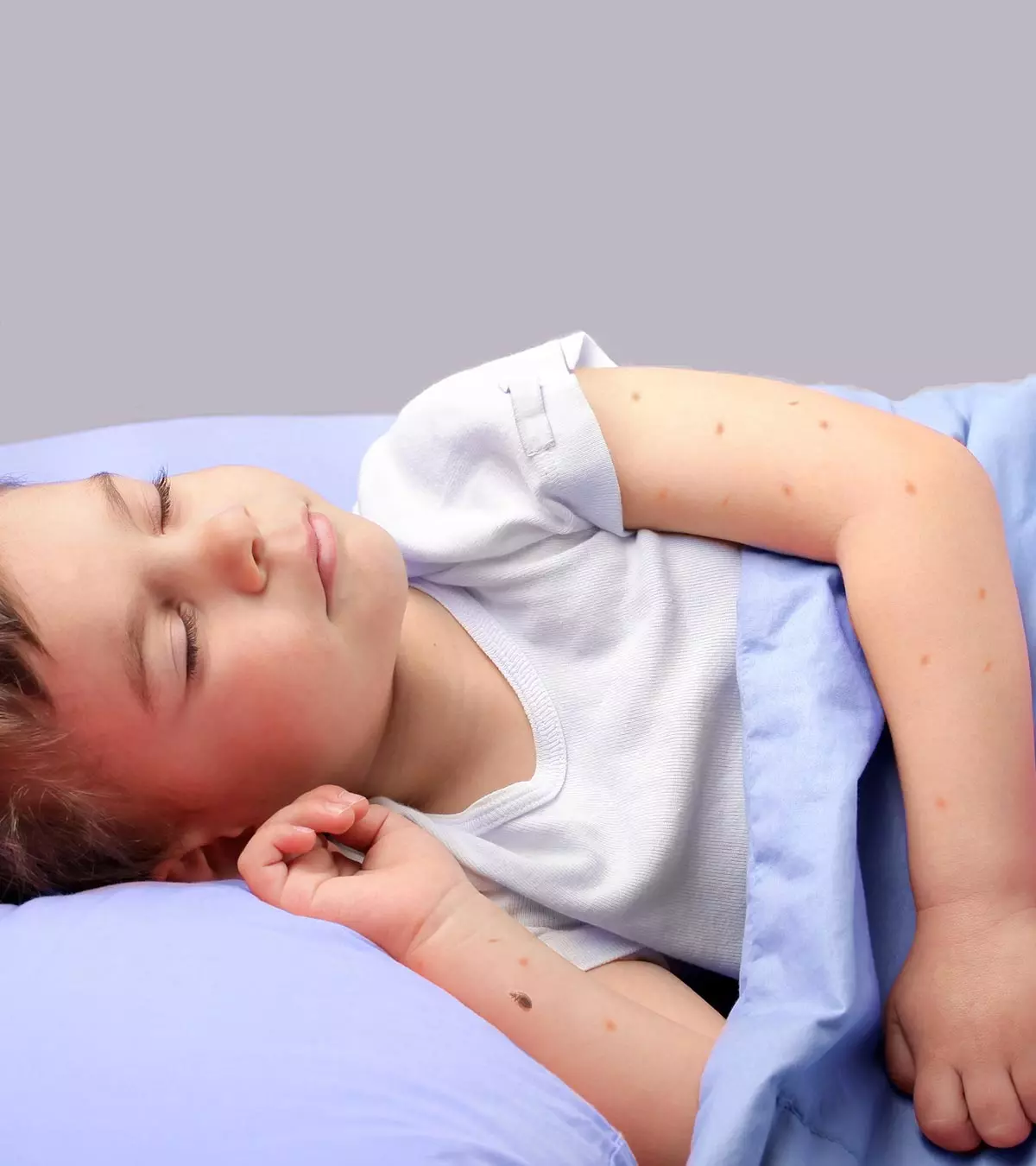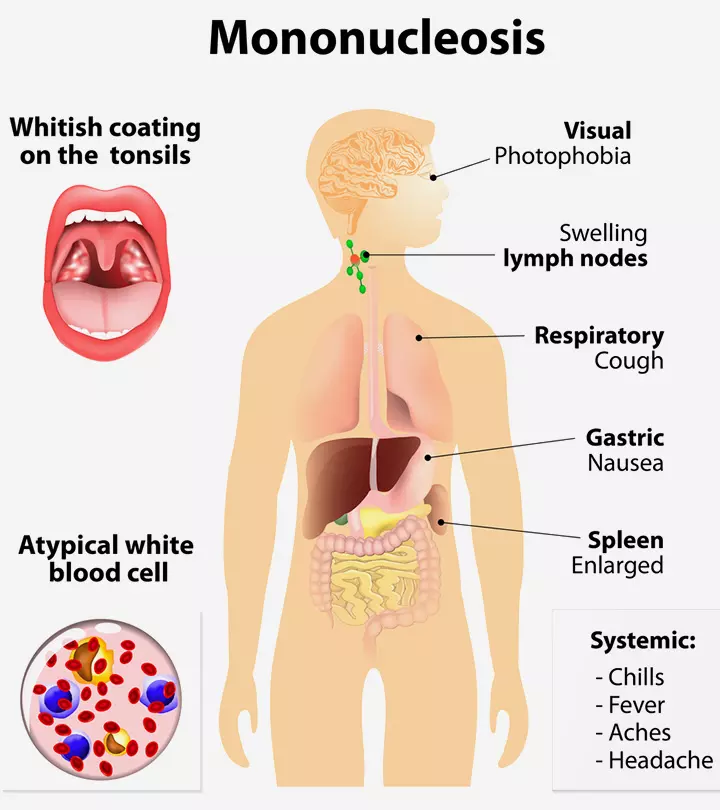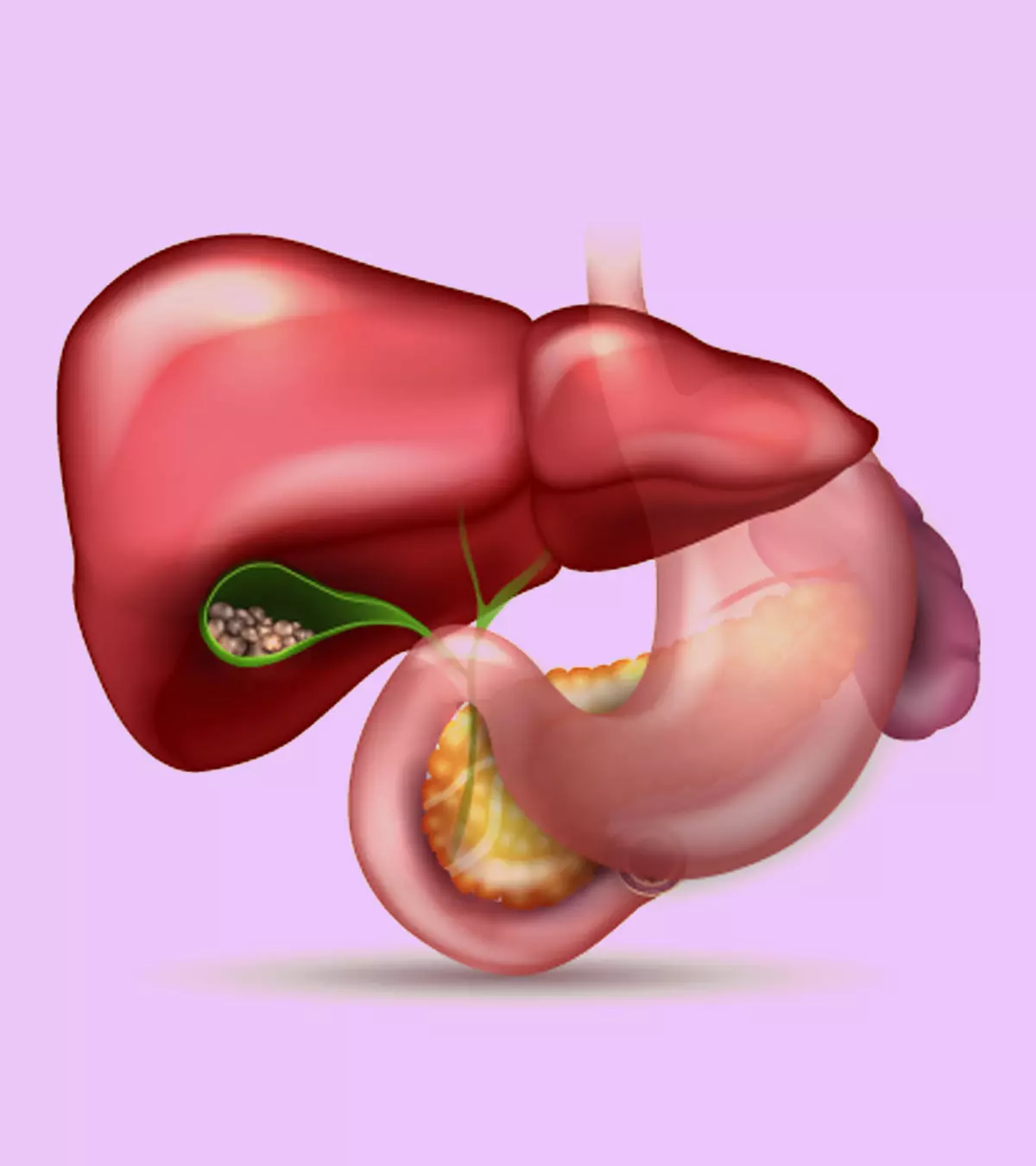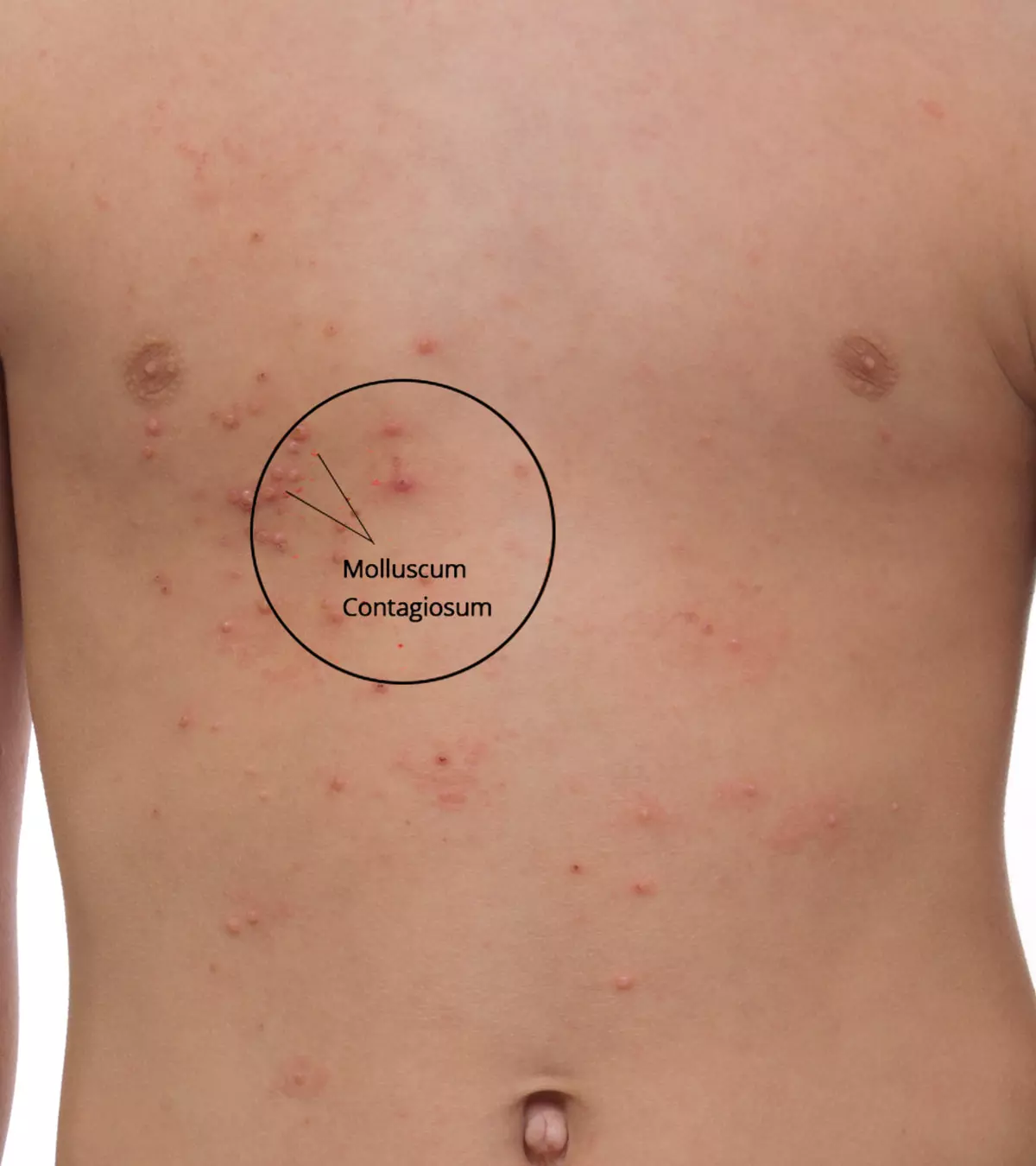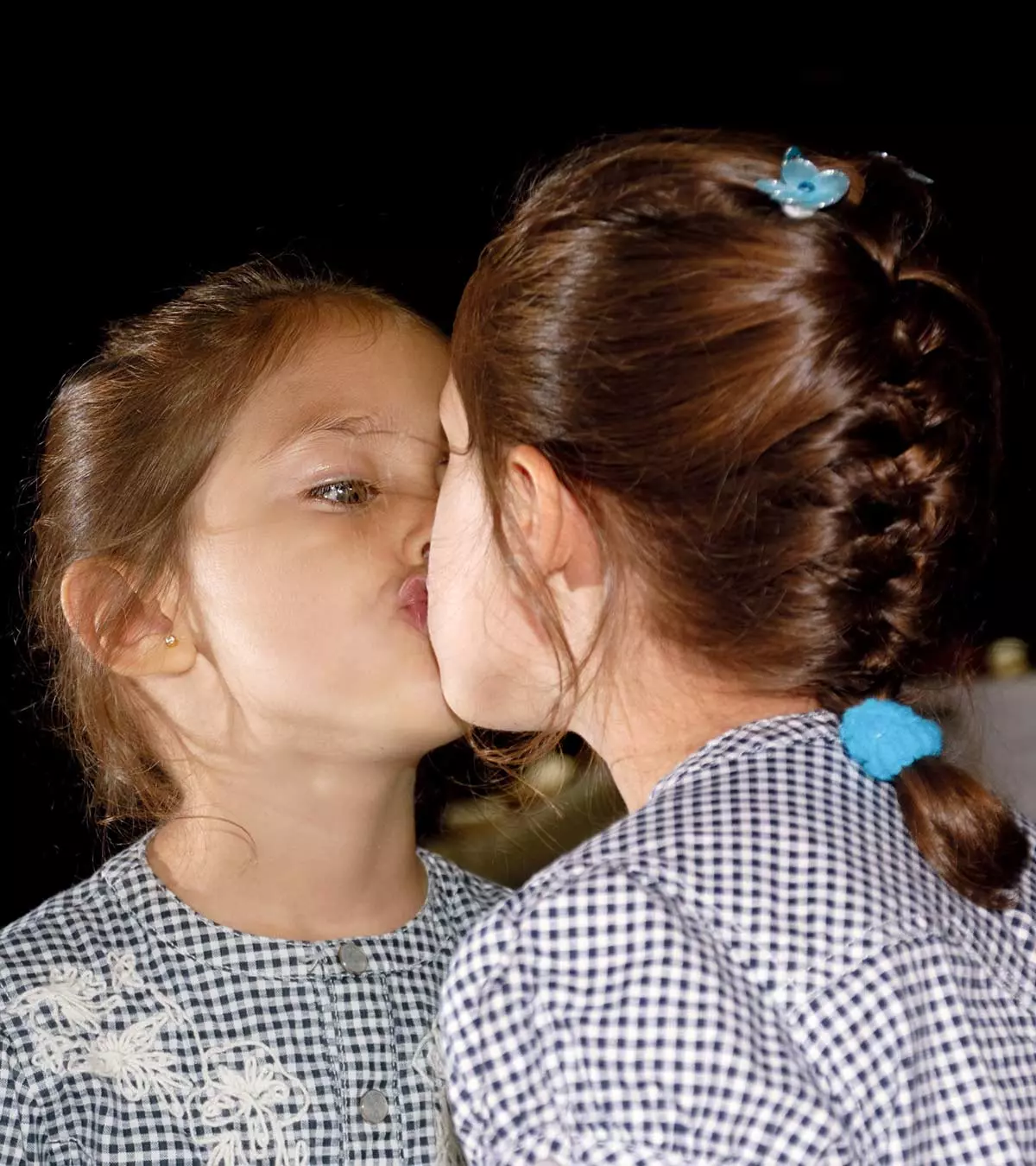
Image: Shutterstock
Narcissistic personality disorder (NPD) is characterized by a constant pattern of magnificence, their need for self-admiration or special treatment, and an illusion of lasting power or importance. Narcissistic children can cause problems in their relationships in the longer run. NPD is a much more complex and advanced mental condition when compared to only narcissism. About 50 to 75% of all people diagnosed with NPD are males (1). Untreated NPD in children may lead to several complications as children grow in age. Continue reading this post to learn about the signs, causes, diagnosis, treatment, complications, and home-care for children with NPD.
Key Pointers
- Narcissistic Personality Disorder is a complex mental disorder characterized by high levels of self-importance, self-admiration, lack of gratitude, grandiosity, unhealthy relationships, and unreasonable expectations.
- Children with NPD exhibit traits such as exploitation, arrogance, opportunism, envy, and an inability to handle criticism or failures.
- Although the exact causes of this disorder are unknown, factors such as negligent or codependent parenting, excessive pampering, parental abuse, irrational expectations, and genetic anomalies can contribute to NPD.
- While the disorder is not life-threatening, it can interfere with the child’s relationships and lead to complications such as drug or alcohol use and social awkwardness.
- Timely diagnosis and the use of therapeutic methods, along with proper home care, can help avoid future complications and restore normal behaviors.
What Is Narcissistic Personality Disorder?

When a personality disorder is related to a person’s immense love for oneself, self-admiration and importance and one’s own requirements, desires and well-being, it is called narcissistic personality disorder (NPD) (1).
Narcissistic children become self-absorbed, may have a superiority complex, and believe they deserve to be treated better than anyone else. They also have complete disregard for the feelings of others.
However, simple self-love or selfishness cannot be termed NPD. So let’s see how a child with NPD differs from a child without NPD.
A Child With NPD Vs. A Child Without NPD
Here are some key differences between children with and without NPD (2):
| CHILD WITHOUT NPD | CHILD WITH NPD |
|---|---|
| The child craves attention but it is age-appropriate. They are grateful and appreciate the attention. | The child resorts to attention-seeking as their right, but does not express gratitude to the parents for being kind and nice to them. |
| The child aspires to be big or role-plays as a superhero, etc., but they know that’s not true. | The child exhibits grandiose behavior and is egoistic, believing the others are lower than them. |
| Their needs are realistic and can be fulfilled. | They have high and unreasonable expectations from others. |
| They make friends and have a good relationship with the family | Find it difficult to make and maintain friendships. |
Signs/ Traits Of NPD In A Child

The following traits, if occurring together, can be the signs of a typical narcissist (3) (4):
- High levels of self-importance
- Unpractical ideas of limitless achievements and power
- Feel that they are entitled to everything they ask for
- Gaze aversion, wherein they do not look into the eyes of the speaker
- Separation anxiety
- Pathologic play
- Believe that they are better than all the other kids around
- Expect enormous respect and adoration
- Opportunistic behavioral pattern
- Don’t understand the needs of fellow beings
- Conceited or arrogant
- Exaggerate their personal abilities or success
- Exploitative or manipulative in nature
- Envious of others’ achievements
- Formal manners even in personal and close relationships
- Inability to take constructive criticism and get hurt or insulted easily
- Blame others for their failures
If you think that your child is on the higher side of most of these traits, then they might have NPD. But how could a child have such a personality disorder?
 Did you know?
Did you know?Causes Of Narcissistic Personality Disorder

The exact causes of narcissistic personality disorder are unknown. However, several factors like early childhood experiences, ambiance and psychological causes are thought to result in such mental conditions (5). Some of the reasons could be:
- Negligent parenting, parents being detached or unresponsive to the child’s care.
- Codependent parenting, where the fine line between being protective and overprotective, love and obsession is not maintained.
- Excessive pampering in childhood or making the kid the golden child of the family, where anything they do is praised indiscriminately.
Kaytee Gillis, LCSW-BACS, MSW, a New Orleans, Louisiana-based psychotherapist, consultant, and author, says, “I often see parents who are scared to say no to a child due to fears of hurting their feelings. Sometimes they overvalue the child above all other children, or even above all other needs of the parents or the family. This creates a child who believes they are more entitled and more important than other human beings.”
- Excessive pampering can also make one a narcissistic extension child, meaning that they are supplied with the admiration or attention they demand.
- Narcissistic parents can affect their kids. Such parents see the child’s individuality as a threat, and curb it. This controlling behavior, in turn, makes the kid a narcissist when they grow up, thinking this is normal.
- Too much negative criticism makes kids feel inadequate and bad about themselves, so they develop narcissism as a defense mechanism.
- Being an adopted child or having divorced parents can make a child insecure and vulnerable. They often don’t feel loved, so self-love helps them carry on in life.
- Irrational expectations from demanding parents can make a child think either too highly or too low of themselves. Both conditions can lead to narcissism.
- Abuse of any sort can make people feel victimized and unloved. They become narcissists unknowingly and prefer not having to see the world in its entirety.
According to the World Health Organization data, around 300 million children between the ages of 2 and 4 years are subjected to psychological violence and physical punishment from their parents or primary caregivers (24).
- Hypersensitive children have a chance of getting narcissistic.
- Genetic anomaly or some genetic aberrationiMorphological or numerical alterations in one or multiple chromosomes can lead to this mental condition due to some changes in the brain.
NPD is not life-threatening but it is good to get it diagnosed and treated for the child to have a better behavior and social life.
 Research finds
Research findsDiagnosis Of NPD
The process of diagnosis will involve a few of these steps (6) (1):
- The doctor will initially evaluate the child’s mental health.
- They will talk to the child to understand their level of self-love and importance.
- The child’s behavior towards the therapists is also analyzed to know whether they are condescending or cordial.
- A physical examination may be done to eliminate other physical conditions that may cause the symptoms.
- If no other cause is found, the doctor will come up with a mental healthcare plan specific to the child.
- The diagnosis of NPD usually involves understanding the patient psychologically; therefore, the doctors use questionnaires, assessment activities, and scale tests.
- The doctor may ask questions on the child’s academic performance, quality of friendships, number of friends, etc.
- Diagnosis is also done to check if the condition is narcissistic personality disorder or something else such as hypomaniaiMild form of mania that causes hyperactive and exhilarating behavior .
- The expert also observes if the NPD symptoms or characteristics displayed by the child are persistent and not phase or mood-based.
- The doctor may also look for signs of some weird things narcissists do to ascertain if your child has NPD.
A common belief is that a person diagnosed with a mentally complex condition tends to remain like that all throughout their life. But NPD is manageable. The sooner narcissistic children get help, the more likely they are to learn healthier ways to cope.
Treatment For NPD
Narcissistic children may need help when their condition begins to interfere with their lives or relationships and pose a risk for themselves and the people around them. They may also need help when they have undergone abuse or when they turn abusive (5). The most effective treatment therapy for narcissistic personality disorder is psychotherapy instead of an outright medicinal treatment.
Some of the widely used therapeutic models are:
- Cognitive behavior therapy: This enables the patient to recognize the problem. To identify the thought and behavior patterns that are adverse and negative. The therapy helps change them with positive and constructive thoughts (7).
- Psychoanalytic psychotherapy: This targets the child’s grandiose self, their defense mechanisms against poor performances, and interactions with parents and peers. The therapy also involves the counseling of the parents and family of such NPD children (8).
- Family therapy: If narcissism is the result of over-evaluation and excessive love from the parents, then a psychotherapist might talk to the parents against such behavior and regulate their emotions towards the child (9).
Doctors prescribe antidepressant medicines to some, as they tend to get depressed and suffer from anxiety. Otherwise, no specific medication is used for the child.
It is important for the child and the parents to follow the treatment process to avoid any future complications.
 Did you know?
Did you know?Complications Arising From NPD
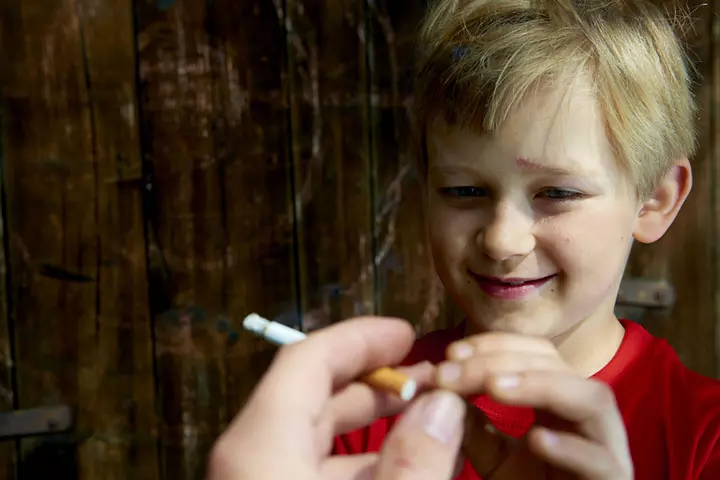
Gillis says, “Narcissistic children often go on to be narcissistic adults unless they work on developing empathy and insight into their behaviors and how they impact others.”
Possible complications that may arise from narcissistic personality disorder are (10) :
- Indulgence in drugs or alcohol when they grow up.
- Relationship crisis with friends and family.
- Getting socially awkward and lacking a social circle.
- Difficult relationships at school and home.
You can avoid the long-term damage by complementing the treatment with personal care at home.
Homecare For A Child With NPD
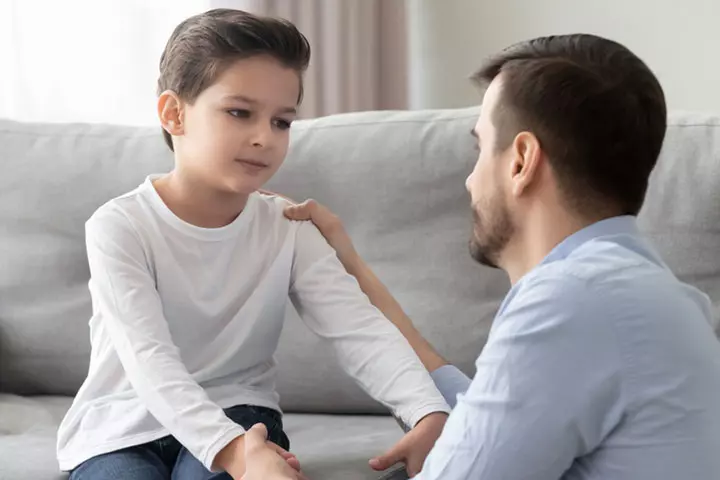
If you observe that your child is showing the traits of narcissism, help them understand the dynamics of emotional and social relationships with these tips:
- Be firm but not violent. Violence and aggression can set your child off from you completely. Narcissists have an inflated ego and they take things personally and get hurt. They suffer from “narcissistic injuryiEmotional trauma caused by humiliation, rejection, and criticism that damages a person's self-worth and pride ” or vulnerable self-esteem. Try to discipline your child practically.
- Curb the sense of entitlement: Make your child understand that they are very much like others in the family and will not get special treatment. For example, if your child feels their siblings and friends are entitled to them, and behaves in a domineering manner, tell them they cannot bully others or expect others to be subservientiWilling to obey others without any objection . At the same time, do not ridicule the child.
- Moderate conversations: Make your child understand that listening to others is as important as talking. The conversations should be 50% speaking and 50% listening. Make them practice this at home.
- Have a balance in relationships: Make your kid understand the dynamics of a relationship, starting from your home; how chores are shared and how everyone has to be considerate towards the other for a better living. Explain to them how you and your spouse share the responsibility of taking care of the family, earning for them, and providing food, while the kids in the family go to school, study and behave well.
- Provide unconditional love: Do not attach your love to something the child achieves. Do not pamper them with gifts when they achieve something and bombard them with insults when they fail. Maintain neutrality, and love them uniformly, always.
Frequently Asked Questions
1. At what age does narcissistic personality disorder develop?
A narcissistic personality disorder may begin in the late teenage and early adulthood. Most personality disorders, including NPD, are diagnosed at 18 years or older. Although some may show signs in childhood, a definitive diagnosis is often made in later years (11).
2. Does childhood trauma cause NPD?
NPD is linked to childhood traumatic experiences. Childhood sexual trauma might be associated with a high risk of developing personality disorders. Children who face severe verbal abuse in childhood can also develop NPDs or other personality disorders in adulthood (12).
3. How do parents create a narcissistic child?
Parental overvaluation can create narcissism in children. Parents showing their child is unique and entitled to others and creating high self-esteem by over-expression of affection and warmth can root the development of narcissistic behaviors in children. Early socialization experiences and overvaluing during developmental years can lead to narcissistic personality development unless some measures are taken on time (13).
4. Is narcissism a learned behavior?
The origins of narcissism are not well known. It can be a learned behavior or linked to genetics. However, the increased risk of developing narcissism in positive family history can also be due to learning narcissistic behaviors from parents or close family members rather than inheriting specific genes. There are two theories defining the origins of narcissism, and the social learning theory holds that overvaluing by parents leads to narcissism. In contrast, the psychoanalytic theory says that lack of affection from parents plays a role in developing narcissistic personality traits (13).
5. How can I live with a narcissistic child?
You should articulate non-negotiable boundaries to deal with the selfish behavior of your child. You may negotiate to make them do the right things rather than becoming impulsive and having emotional outbursts. They may use gaslightingiA manipulative tool used to make a person question themselves phrases to attack your self-esteem, and you may wisely deal with them rather than getting emotional or bursting out of anger. Seek support and therapies to tighten your self-esteem and reduce stress (14).
6. How do I discipline a child with NPD?
Avoid overvaluing your child for their achievements. You may compliment them by saying “how attentive they were in the game” rather than saying “great job” or “you are the best”. Never compare them to others. They may have a lack of empathy but you can teach them by helping them understand how other people may feel about specific actions or behaviors. Encourage them to take responsibility for their actions even though the outcome is not impressive. Moreover, parents should be the role models to develop good behaviors in children.
7. Can narcissism in a child be permanently cured?
Narcissism can be treated using various methods, such as self psychology (psychoanalytic) therapy, group music therapy, cold therapy, and mentalization therapy, but it can’t be permanently cured (21) (22) (23). In addition, treating narcissism is challenging as people with narcissistic personality disorder lack the insight to recognize a problem in themselves, due to which they refuse to attend therapies (19) (20).
Narcissistic children are self-centered, vain, and believe themselves to be superior. They tend to blame their failures on others and have no regard for others. Childhood abuse or having negligent, overprotective, or narcissistic parents may contribute to children developing such behavior. Narcissist personality disorder (NPD) may be diagnosed and managed using cognitive behavior therapy, psychotherapy, and family education. Narcissistic children find it difficult to establish relationships with others and may end up falling prey to drugs or alcohol. Although difficult, a person with this disorder can change with effective intervention, discipline, and willpower.
Infographic: Homecare For A Child With NPD
Your love for your child may make you overlook the concerning narcissistic behaviors. But if you don’t control your child at home, it can lead to risky habits and problematic relationships in the longer run. To help you with that, we bring effective tips to handle your child’s narcissistic behavior. Illustration: Momjunction Design Team
Children and adolescents can exhibit narcissistic traits. This video examines the signs and symptoms of narcissism in youth, as well as strategies to assist them.
References:
- Elizabeth L. Kacel et al.; (2018); Narcissistic Personality Disorder in Clinical Health Psychology Practice: Case Studies of Comorbid Psychological Distress and Life-Limiting Illness.
https://www.ncbi.nlm.nih.gov/pmc/articles/PMC5819598/ - K. Bardenstein; (2009); The Cracked Mirror: Features of Narcissistic Personality Disorder in Children.
https://www.semanticscholar.org/paper/The-Cracked-Mirror%3A-Features-of-Narcissistic-in-Bardenstein/30d65b389507bde32d681b9872ce443bf8fa1ffe?p2df - Narcissistic Personality Disorder.
https://my.clevelandclinic.org/health/diseases/9742-narcissistic-personality-disorder - Y Fan et al.; (2011); The narcissistic self and its psychological and neural correlates: an exploratory fMRI study.
https://pubmed.ncbi.nlm.nih.gov/21144117/ - Narcissistic personality disorder (NPD).
https://www.healthdirect.gov.au/narcissistic-personality-disorder-npd - Eve Caligor et al.; (2015); Narcissistic Personality Disorder: Diagnostic and Clinical Challenges.
https://psychiatryonline.org/doi/10.1176/appi.ajp.2014.14060723 - Nakao, Mutsuhiro, et al.; (2021); Cognitive–Behavioral Therapy for Management of Mental Health and Stress-related Disorders: Recent Advances in Techniques and Technologies.
https://pmc.ncbi.nlm.nih.gov/articles/PMC8489050/ - P F Kernberg; (1989); Narcissistic personality disorder in childhood.
https://pubmed.ncbi.nlm.nih.gov/2798202/ - Eddie Brummelman et al.; (2015); Origins of narcissism in children.
https://www.ncbi.nlm.nih.gov/pmc/articles/PMC4378434/ - Narcissistic personality disorder.
https://medlineplus.gov/ency/article/000934.htm - Narcissistic Personality Disorder.
https://my.clevelandclinic.org/health/diseases/9742-narcissistic-personality-disorder - What Causes Personality Disorder.
https://www.apa.org/topics/personality-disorders/causes - Origins Of Narcissism In Children.
https://www.pnas.org/doi/10.1073/pnas.1420870112 - How To Deal With A Narcissist.
https://www.goodtherapy.org/learn-about-therapy/issues/narcissism/how-to-deal - Raising A Narcissistic Child.
https://www.theedadvocate.org/raising-narcissistic-child/ - Nicolas Hoertel et al.; (2018); Examining sex differences in DSM-IV narcissistic personality disorder symptom expression using Item Response
https://www.ncbi.nlm.nih.gov/pmc/articles/PMC6002876/ - Paroma Mitra and Dimy Fluyau; (2022); Narcissistic Personality Disorder.
https://www.ncbi.nlm.nih.gov/books/NBK556001/ - Jessica Yakeley; (2018); Current understanding of narcissism and narcissistic personality disorder.
https://www.cambridge.org/core/journals/bjpsych-advances/article/current-understanding-of-narcissism-and-narcissistic-personality-disorder/4AA8B04FB352F8E00AA7988B63EBE973 - Study shows Narcissistic Personality Disorder may have a biological component.
https://www.uchicagomedicine.org/forefront/research-and-discoveries-articles/study-shows-narcissistic-personality-disorder-may-have-a-biological-component - Paroma Mitra and Dimy Fluyau; (2022); Narcissistic Personality Disorder.
https://www.ncbi.nlm.nih.gov/books/NBK556001/ - Narcissistic Personality Disorder.
https://www.tamuct.edu/research/databases/disorders/narcissistic-personality-disorder.html - Lisa Riggs Hobbs; (2022); A Group Music Therapy Method to Promote Mentalization Skills in Clients with Narcissistic Personality Disorder.
https://digitalcommons.lesley.edu/cgi/viewcontent.cgi?article=1563&context=expressive_theses - Sam Vaknin; (2018); Cold Therapy and Narcissistic Disorders of the Self.
https://www.academia.edu/79884316/Cold_Therapy_and_Narcissistic_Disorders_of_the_Self - Child maltreatment.
https://www.who.int/news-room/fact-sheets/detail/child-maltreatment
Community Experiences
Join the conversation and become a part of our nurturing community! Share your stories, experiences, and insights to connect with fellow parents.
Read full bio of Carol Ummel Lindquist
- Kaytee Gillis is a psychotherapist, consultant, and writer with a degree in counseling psychology from the University of South Maine. She has four years of experience and is currently practicing in New Orleans, Louisiana as a private practitioner, blogger, and instructor.
 Kaytee Gillis is a psychotherapist, consultant, and writer with a degree in counseling psychology from the University of South Maine. She has four years of experience and is currently practicing in New Orleans, Louisiana as a private practitioner, blogger, and instructor.
Kaytee Gillis is a psychotherapist, consultant, and writer with a degree in counseling psychology from the University of South Maine. She has four years of experience and is currently practicing in New Orleans, Louisiana as a private practitioner, blogger, and instructor.
Read full bio of Sagari Gongala
Read full bio of Swati Patwal
Read full bio of Apoorva K








